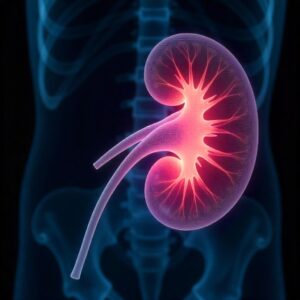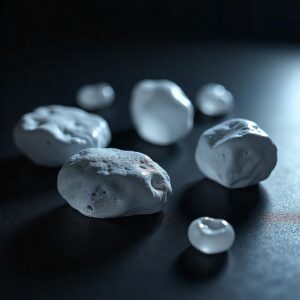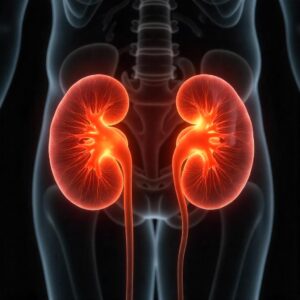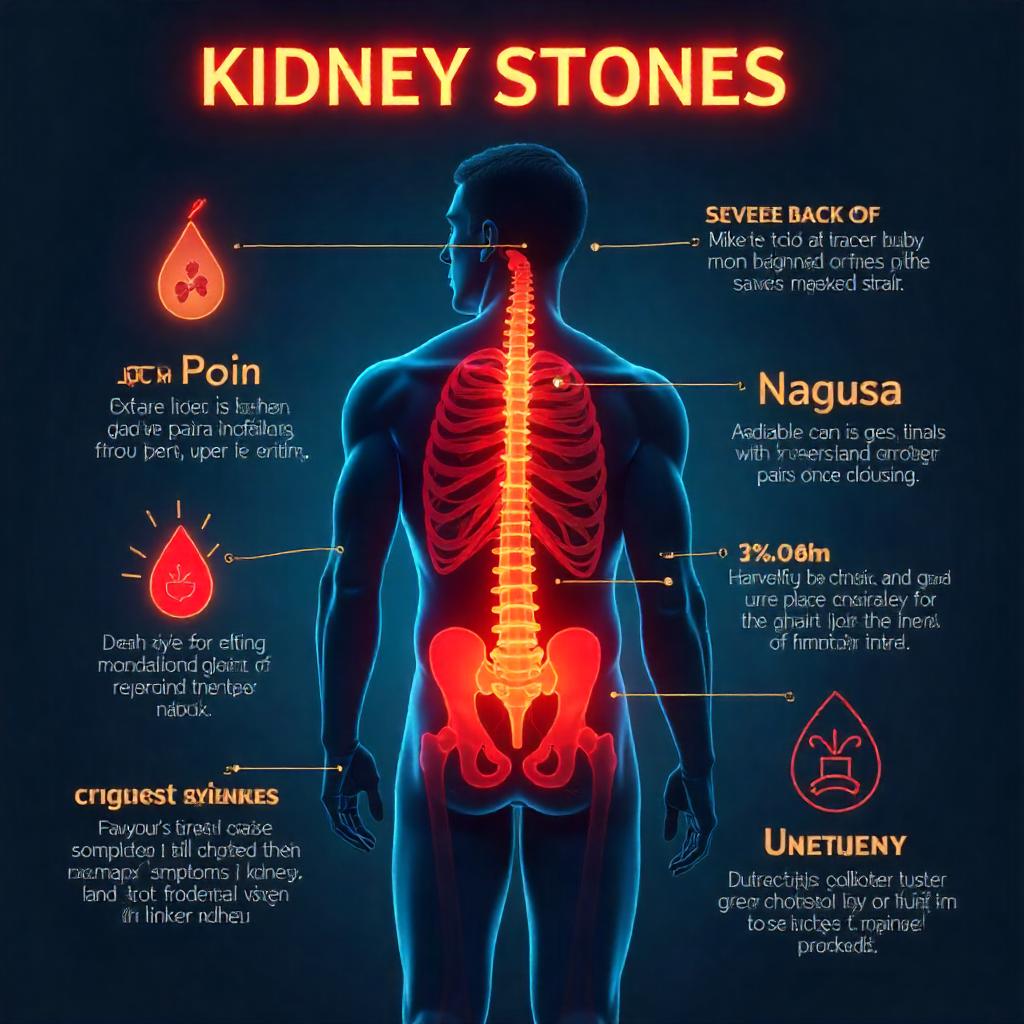Introduction
Kidney stones, also known as renal calculi, are hard deposits made of minerals and salts that form inside your kidneys. They can affect any part of your urinary tract, from your kidneys to your bladder. This comprehensive guide will cover everything you need to know about kidney stones, including their causes, symptoms, treatment options, and prevention strategies.

What Are Kidney Stones?
Kidney stones are small, hard mineral deposits that form in the kidneys. They may vary in size from tiny crystals to large stones that can block the urinary tract. The process of stone formation is called urolithiasis.
Types of Kidney Stones
Understanding the different types of kidney stones is crucial for both treatment and prevention:
- Calcium Stones:
- Calcium Oxalate Stones: The most common type of kidney stone, formed from calcium and oxalate. High oxalate foods include spinach, beets, nuts, and chocolate.
- Calcium Phosphate Stones: Less common, they can develop in people with certain metabolic disorders.
- Struvite Stones:
- Often form after urinary tract infections (UTIs). These stones can grow quickly and become large, sometimes requiring surgical intervention.
- Uric Acid Stones:
- These stones occur when the urine is too acidic. They are more common in men and can be associated with conditions such as gout.
- Cystine Stones:
- Rare stones that form in people with a hereditary disorder called cystinuria, which causes the kidneys to excrete too much cystine.

Causes of Kidney Stones
Understanding the causes of kidney stones is crucial for prevention. The following factors can contribute to their formation:
- Dehydration:
- Not drinking enough water leads to concentrated urine, increasing the risk of stone formation. It’s essential to stay well-hydrated, especially in hot climates or during intense exercise.
- Diet:
- High levels of sodium, sugar, and animal protein can increase the likelihood of stones. Foods high in oxalate can also contribute to calcium oxalate stones.
- Obesity:
- Being overweight can alter the acid levels in urine, leading to stone formation. A healthy diet and regular physical activity are crucial for maintaining a healthy weight.
- Family History:
- A genetic predisposition can increase the risk of developing kidney stones. If you have a family history of kidney stones, you may be more likely to develop them yourself.
- Certain Medical Conditions:
- Disorders such as gout, hyperparathyroidism, and urinary tract infections can also contribute to stone formation. Additionally, conditions like inflammatory bowel disease can affect calcium and oxalate absorption, leading to higher stone risk.
- Medications:
- Certain medications can increase the likelihood of stone formation. For example, diuretics may lead to higher calcium levels in urine, while certain antacids can increase calcium and oxalate levels.

Symptoms of Kidney Stones
Symptoms of kidney stones can vary based on the stone’s size and location. Common symptoms include:
- Severe Pain:
- Often described as sharp and cramping, usually in the back and side, below the ribs. The pain can come in waves and fluctuate in intensity, often referred to as renal colic.
- Pain During Urination:
- A burning sensation when urinating is common, especially if the stone is near the bladder.
- Blood in Urine:
- Urine may appear pink, red, or brown, indicating the presence of blood.
- Frequent Urination:
- An increased urge to urinate, often with little urine output, can occur as the stone moves down the urinary tract.
- Nausea and Vomiting:
- Pain can be so intense that it triggers nausea or vomiting.
- Cloudy or Foul-Smelling Urine:
- Infection can cause urine to appear cloudy or have a strong odor.
Diagnosis of Kidney Stones
To diagnose kidney stones, healthcare providers may use the following methods:
- Imaging Tests:
- Ultrasounds: Useful for detecting stones without radiation exposure.
- X-rays: Can help identify larger stones but may miss smaller ones.
- CT Scans: The most effective method for locating stones, providing detailed images of the kidneys and urinary tract.
- Urine Tests:
- Analyzing urine can help determine the type of stone and identify any underlying issues. A 24-hour urine collection may be required to measure substances that contribute to stone formation.
- Blood Tests:
- Blood tests can identify conditions contributing to stone formation, such as high calcium or uric acid levels.
Treatment Options for Kidney Stones
Treatment for kidney stones largely depends on the size of the stone and the severity of symptoms. Here are some common treatment options:

1. Home Remedies
- Hydration:
- Drinking plenty of water can help flush out small stones. Aim for at least 8-10 glasses of water a day.
- Pain Management:
- Over-the-counter pain relievers, such as ibuprofen or acetaminophen, can help manage discomfort.
2. Medical Treatments
- Medications:
- Alpha-blockers, such as tamsulosin, can help relax the muscles in the ureter, making it easier to pass stones.
- Extracorporeal Shock Wave Lithotripsy (ESWL):
- A non-invasive procedure that uses shock waves to break stones into smaller pieces, allowing them to pass more easily.
- Ureteroscopy:
- A thin tube is inserted through the urethra and bladder into the ureter, allowing the doctor to remove or break up stones.
- Percutaneous Nephrolithotomy:
- A surgical procedure for large stones, where a small incision is made in the back to remove the stones directly from the kidney.
3. Surgery
In cases where other treatments fail or if the stone is too large, surgery may be necessary to remove the stones. This is typically considered a last resort when other methods are ineffective.
Prevention of Kidney Stones
Preventing kidney stones often involves lifestyle and dietary changes. Here are some effective strategies:
1. Stay Hydrated
- Aim to drink at least 8-10 glasses of water a day to dilute urine and prevent stone formation. A good way to monitor hydration is to check the color of your urine; pale yellow indicates proper hydration.
2. Modify Your Diet
- Limit Sodium:
- Reduce salt intake to decrease calcium levels in urine. Aim for less than 2,300 mg of sodium per day.
- Reduce Animal Protein:
- Limit red meat, poultry, and shellfish. A diet high in animal protein can increase uric acid levels and contribute to stone formation.
- Increase Fruits and Vegetables:
- A diet rich in fruits and vegetables can help prevent stones. Foods high in potassium, such as bananas and oranges, can help reduce the risk.
- Limit Oxalate-Rich Foods:
- Foods high in oxalate, such as spinach, beets, and chocolate, should be consumed in moderation. Pairing oxalate-rich foods with calcium-rich foods can help mitigate their effects.
3. Maintain a Healthy Weight
- Achieve and maintain a healthy weight to reduce the risk of obesity-related kidney stones. Regular physical activity and a balanced diet are key components of weight management.
4. Limit Sugar and Sugary Beverages
- High sugar intake, especially from sugary drinks, can increase the risk of kidney stones. Opt for water and other low-sugar beverages instead.
5. Monitor Calcium Intake
- While calcium is essential for bone health, excessive calcium can lead to stone formation. Aim for a balanced intake of calcium through dietary sources rather than supplements unless advised by a healthcare provider.
6. Consider Medication
- If you have a history of kidney stones, your doctor may prescribe medications to help prevent recurrence, such as thiazide diuretics for calcium stones or allopurinol for uric acid stones.
FAQs About Kidney Stones
1. What are the early signs of kidney stones?
Early signs of kidney stones include severe pain in the back or side, pain during urination, blood in urine, and frequent urination.
2. Are kidney stones hereditary?
Yes, a family history of kidney stones can increase your risk of developing them. If your parents or siblings have had kidney stones, you may be more susceptible.
3. How long does it take to pass a kidney stone?
The time it takes to pass a kidney stone varies but can range from a few days to several weeks, depending on the stone’s size and location. Smaller stones can pass more quickly.
4. Can kidney stones be prevented?
Yes, kidney stones can often be prevented through proper hydration, dietary modifications, and maintaining a healthy weight. Regular check-ups with a healthcare provider can also help monitor risk factors.
5. Is surgery always necessary for kidney stones?
No, not all kidney stones require surgery. Many small stones can be passed naturally with proper hydration and pain management. Surgery is typically reserved for larger stones or when complications arise.
6. What foods should I avoid if I have kidney stones?
Individuals prone to kidney stones should limit foods high in oxalate (like spinach and nuts), reduce sodium and animal protein intake, and avoid excessive sugar and sugary beverages.
7. Can kidney stones lead to other health issues?
Yes, kidney stones can lead to urinary tract infections and, in severe cases, kidney damage if left untreated. Prompt medical attention is essential to avoid complications.
8. What is the best way to manage pain from kidney stones?
Over-the-counter pain relievers, such as ibuprofen or acetaminophen, can help manage discomfort. Staying hydrated and using a heating pad can also alleviate pain.
9. How can I tell if my kidney stone is passing?
Signs that a kidney stone is passing include a change in pain intensity, increased urgency to urinate, and possibly noticing blood in the urine. Once the stone has passed, the pain typically subsides.
10. When should I see a doctor for kidney stones?
You should seek medical attention if you experience severe pain, blood in your urine, fever, or difficulty urinating. If you have a history of kidney stones and experience symptoms, it’s best to consult a healthcare provider.
Conclusion
Kidney stones are a common condition that can cause significant discomfort and complications. Understanding the causes, symptoms, treatment options, and prevention strategies is essential for managing this condition effectively. By making informed lifestyle choices and seeking medical advice when necessary, individuals can reduce their risk of developing kidney stones and lead a healthier life.
Final Thoughts
In summary, staying informed about kidney stones and their management is vital for those at risk. Regular check-ups and being proactive about dietary and lifestyle changes can significantly reduce the chances of stone formation. If you experience symptoms related to kidney stones, it is crucial to consult with a healthcare provider for appropriate diagnosis and treatment. With the right knowledge and care, kidney stones can be effectively managed and prevented.


1 thought on “Understanding Kidney Stones: Causes, Symptoms, Treatment, and Prevention”